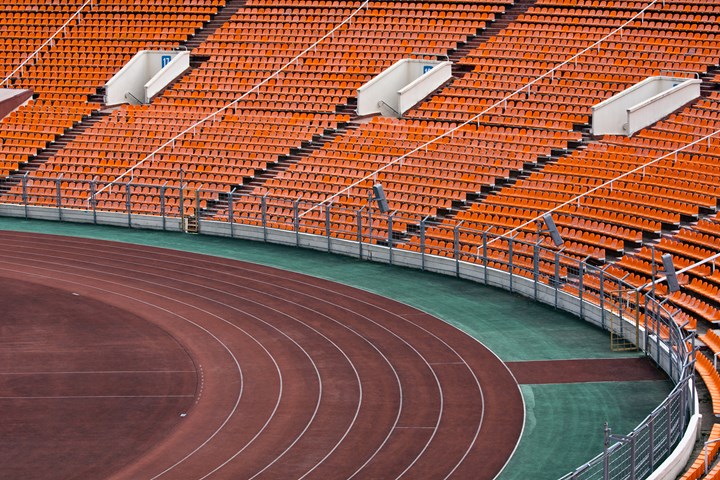How the delayed Olympic Games disrupts Japan’s recycled fibre sector
The Tokyo Olympics could be a game-changer for sustainable textiles – but some momentum has been lost
1 minute read
Emma Liu
Senior Consultant and Research Analyst, Fibres

Emma Liu
Senior Consultant and Research Analyst, Fibres
Emma focuses on the Asian fibres market, where she closely follows prices and dynamics.
Latest articles by Emma
-
Opinion
Tackling the textile industry’s carbon footprint
-
Opinion
How the delayed Olympic Games disrupts Japan’s recycled fibre sector
On 24 March, Japan announced the decision to postpone the Tokyo 2020 Olympic Games until July 2021 due to the Covid-19 pandemic. The news was unsurprising and indeed understandable, but nonetheless disappointing for many. The textile industry had been poised for a boom in sporting apparel sales as Olympics enthusiasm swept the world – and a surge of interest in recycled products. So how disruptive is the delay?
This article draws on insight from our Fibres Global Monthly Market Overview.
The Olympics was set to be a landmark event for sustainable textiles
Japan is determined to deliver a sustainable Olympic Games and planned to promote the concept of “Reduce, Reuse, Recycle” across the event. The podiums for the medal award ceremonies will be made from plastic waste, for example, while the medals will be made from recycled electronic waste. Similarly, staff and volunteer uniforms are made of recycled material, as are the casual uniforms for Japan’s athletes, to be worn at the opening and closing ceremonies and around the athletes' villages.
The only gold partner of the Tokyo 2020 Games in the sporting goods category, Japanese firm ASICS is one of the companies responsible for the production of the uniforms. The ASICS Reborn Wear Project (ARWPJ) launched in January 2019, aimed at repurposing sports clothing from the Japanese public. Collection boxes were set up in retail stores and at various sporting events to gather around 30,000 items of sportswear, with clothes from any brand accepted. In collaboration with a Japanese textile chemical recycling company, Jeplan, recycled polyester fibre was extracted from the donated sportswear and used to produce uniforms.
As the decision to delay the Games came only four months ahead of the opening ceremony, production of the uniforms had already been completed. Luckily, apparel can be stored for a relatively long time, but there are still additional maintenance costs. To ensure that the uniform does not fade, many are now stored in constant temperature warehouses.
The impact of the sustainability message has been delayed
Although the Olympic Games has been postponed, its sustainability initiatives have still raised environmental awareness among consumers and the textile industry. This global event remains the ideal stage to present a workable circular production model for the apparel sector.
It’s a necessary step forward. The fashion and textile industry does need to respond to criticism on many environmental issues. Not only does garment production pose problems – mainly water use, CO2 emissions and chemical pollution – but the rapid increase in production and consumption has resulted in huge volumes of textile waste. The majority ends up either in landfills or incinerators, with the rest mainly down-cycled to produce wipes, rags, stuffing and insulation fibres.
Incredibly, less than 1% of textile waste is recycled back into new garments.
This global event remains the ideal stage to present a workable circular production model for the apparel sector.

Emma Liu
Senior Consultant and Research Analyst, Fibres
Emma focuses on the Asian fibres market, where she closely follows prices and dynamics.
Latest articles by Emma
-
Opinion
Tackling the textile industry’s carbon footprint
-
Opinion
How the delayed Olympic Games disrupts Japan’s recycled fibre sector
The Olympics’ initiative to collect sportswear for new uniforms is a very high profile way to change people’s attitudes toward treating textiles as a commodity rather than waste. As the Olympics hype picks up again organisers will need to reiterate this message to ensure its full impact isn’t lost.
The Olympics drove a surge in demand for rPET and chemical recycling – but some momentum has been lost
Technology to recycle textile fibres from discarded clothing still has a long way to go to compete with virgin fibre volumes and costs. Many textiles are made from a blend of two or more fibre types, and it’s a challenge for recyclers to separate blends into single-component streams. Besides the technical difficulty, chemical fibre-to-fibre recycling also needs to be economically viable, with a cost acceptable to consumers.
Due to the restrictions of chemical recycling, most uniforms for the Tokyo Olympic Games are made of recycled PET (rPET) bottles. Japan has an advanced bottle recycling system driven by government regulations, primarily the 1995 Containers and Packaging Law, and demanding quality specifications facilitate high recovery and recycling rates.
In response to demand from the Olympic Games, chemical recycling has developed to a greater extent in Japan compared to other countries and domestic recycling volume has tracked a steady increase since 2016. However, the rising trend is likely to be disrupted this year due to Covid-19. According to data from the Japan Containers and Packaging Recycling Association, Japan’s waste PET bottle sales in Q2 recorded a year-on-year decline of 12.7%.
Apparel sales linked to consumer interest in the Olympics – when it finally takes place – will come as a welcome boost.

Emma Liu
Senior Consultant and Research Analyst, Fibres
Emma focuses on the Asian fibres market, where she closely follows prices and dynamics.
Latest articles by Emma
-
Opinion
Tackling the textile industry’s carbon footprint
-
Opinion
How the delayed Olympic Games disrupts Japan’s recycled fibre sector
Besides the slow demand caused by the pandemic, lower virgin prices this year also exerted pressure on the recycled material market. Some users are switching back from recycled material to virgin as a result. The main issue restricting the operation rates of recycling plants has switched from insufficient high-quality waste bottle supply to insufficient downstream demand from apparel brands and retailers. Apparel sales linked to consumer interest in the Olympics – when it finally takes place – will come as a welcome boost.
Despite the short-term impact from the pandemic, we expect the long-term sustainability commitments of the Tokyo Olympics to remain in place, driven by global brands’ pledges to increase the recycled content of their products. In terms of Olympic legacy, the Tokyo Games has already undoubtably advanced Japan’s textile recycling industry – but due to Covid-19, we’ll just have to wait another year to hear about it.
Find out more about our research into the global fibres market.
Want to read more from our chemicals experts?
The Chemical Reaction is a regular blog from Wood Mackenzie’s global chemicals team. Our analysts share their view of the news, events and trends in their region and around the world. Fill in the form at the top of the page for a complimentary copy.

